Lecture 27: Chapter 11 Qualitative Data Design and Collection 11/20/23
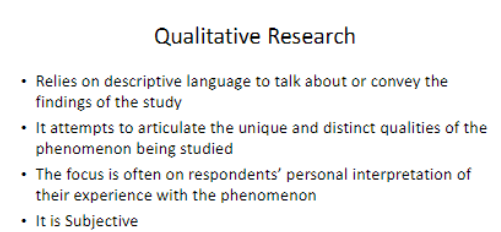 there are no room for statistics with qualitative research
there are no room for statistics with qualitative research
seeks to describe complex qualities that make up social phenomenon
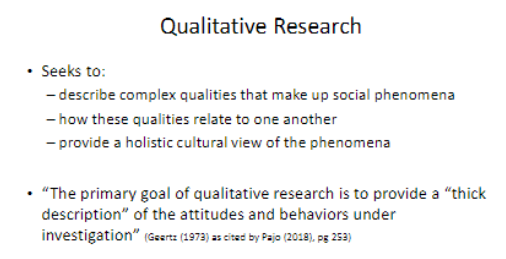
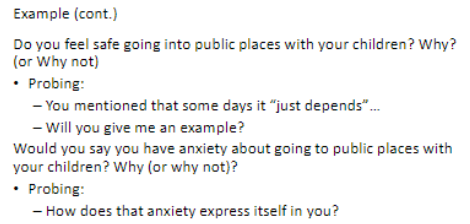 with this, you will come across jargon from specific families, reasons, etc.
with this, you will come across jargon from specific families, reasons, etc.
always ask for an example after the first question
then, flip it like u would in a survey, such as the anxiety question, then probe some more. S

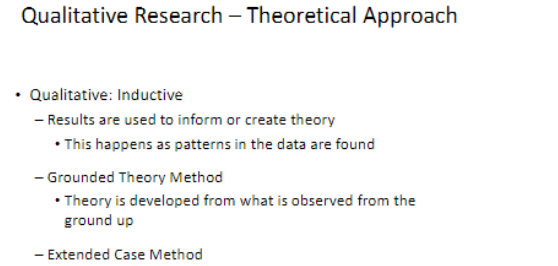 it can take at least a year, at least, and sometimes can take longer
it can take at least a year, at least, and sometimes can take longer
grounded and extended case are two different methods of going about qualitative studies
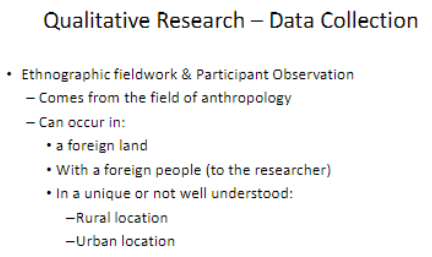 you do ethnographic research with a group and environment that is foreign to you
you do ethnographic research with a group and environment that is foreign to you
unique or not well understood environments
areas of persistent poverty/
appalachia
very secluded cults that have a very strong culture
basically what you do is live with them for 6 months or more and learn as much as you can about them
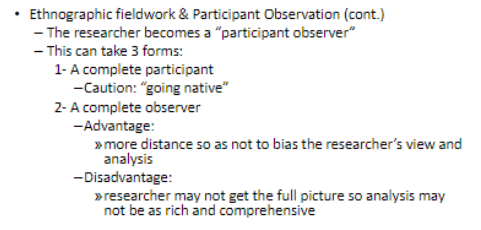 going native is when you fall in love with the culture, you become so invested and so connected that like you blend into the culture and you become biased and basically forget your study and no longer view it as work but like a continuing way of life you became a part of
going native is when you fall in love with the culture, you become so invested and so connected that like you blend into the culture and you become biased and basically forget your study and no longer view it as work but like a continuing way of life you became a part of
complete observation prevents going native. can be a disadvantage in some cultures data is needed from
 this could happen or be needed to happen for a plethora of reasons
this could happen or be needed to happen for a plethora of reasons
 you need someone to guide you through things: laws, policing, cultural oks and no-nos
you need someone to guide you through things: laws, policing, cultural oks and no-nos
the field journal is like actually noting every single thing they are looking for. likel literally everything. however, it can drop down to being just once every hour, or once a day.
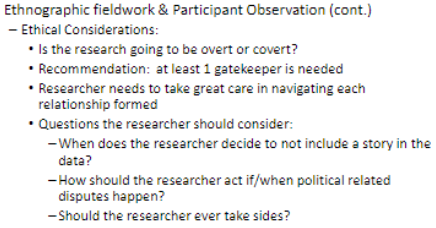 covert means they don’t know you are there, overt means you are there.
covert means they don’t know you are there, overt means you are there.
a gate keeper is someone who gives you a greenpass and helps you like gain trust and get into the group
you should be careful because you may make actual friendships but make sure you set boundaries (maybe inform them beforehand, and communicate boundaries)
you have to respect their tribal laws, take steps back when needed, do not advocate for people because you got close with them and now want to protect them from getting in trouble with things like if they get caught with drugs or etc.
taking sides…e.g. what happens if you come across something like child abuse with the participants….your gatekeeper helps you know what you’re getting into beforehand and what you can and cant do about it
ethnographic is really useful in sociology and anthropology
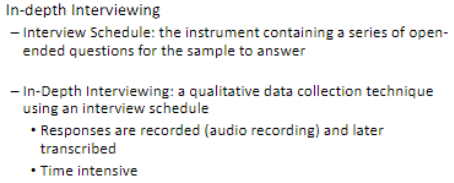 you can do this with or without being immersed in a culture, can be digital or face-to-face. either way, you wanna record the responses so you can focus rather than be taking notes
you can do this with or without being immersed in a culture, can be digital or face-to-face. either way, you wanna record the responses so you can focus rather than be taking notes

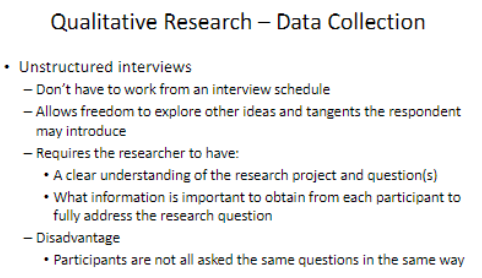
only a very seasoned and experienced researcher should do unstructured
requires much more effort, experience, and organization
they know how to get rid or error while also asking different questions s
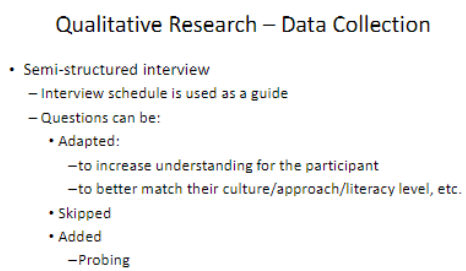
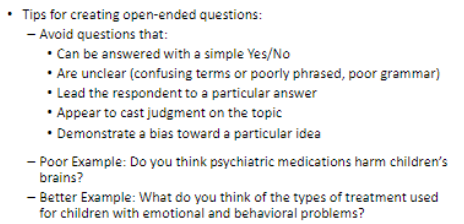
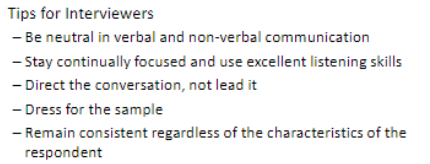 neutrality is about tone of voice, body language, what question you ask and how you ask it so that you don’t
neutrality is about tone of voice, body language, what question you ask and how you ask it so that you don’t
direct the convo, but not lead…you are not sharing your experiences
dress for the sample
remain consistent even if you like them
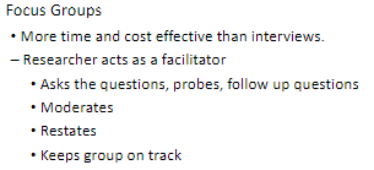
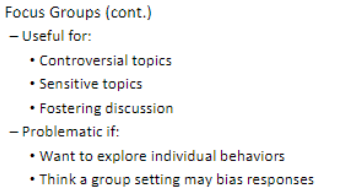


interviewing teachers,
choosing teachers, maybe seeing the top universities in texas, and seeing where most of their sstudents come from who are texas residents, maybe start with ES and MS and then do a HS one for collge world and readiness, and then another one for MS and HS readiness and success
different categories of teachers, possibly getting Shanice to help you
ESL teachers, different age groups, particularly teachers that help kids transition from elementary stages to MS to HS